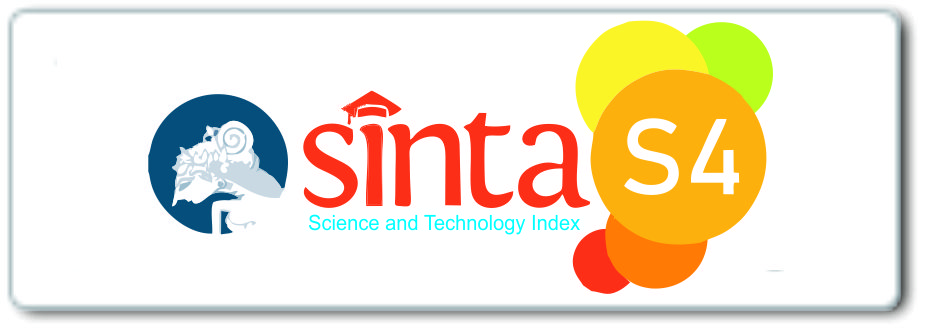MANIFESTING GENDER EQUALITY ON INDONESIAN FEMALE LABOR PARTICIPATION IN MANAGERIAL POSITIONS
DOI:
https://doi.org/10.32332/jsga.v6i02.9658Keywords:
Gender Equality, female labor participation, managerial positionAbstract
Recently, there has been a growing concern for gender equality, especially in women's participation in the labor market, as an effort toward achieving the SDGs. This study aims to explore gender equality regarding women's participation in managerial positions in Indonesia. It uses provincial-level data covering 2018 to 2023. Cluster analysis is applied to assess gender equality through women's representation in managerial roles across different provinces. Additionally, Panel Corrected Standard Error (PCSE) regression is used to analyze provincial-level data, focusing on the socio-economic determinants influencing women's managerial participation. This study found that most provinces in Indonesia are still in the 'low' cluster in terms of women's participation in managerial positions. The panel data analysis reveals that female educational attainment and women's participation in politics significantly enhance women's representation in managerial positions across Indonesian provinces, while the female labor force participation rate also has a positive but less pronounced effect. Economic factors such as GRDP per capita and average labor wage do not show significant impacts, suggesting that non-economic barriers might be more influential in determining women's managerial roles. Overall, the findings highlight the importance of education, political empowerment, and broader female workforce participation in promoting gender equality.
Keywords: Gender Equality, Female Labor Participation, Managerial Position
Abstrak
Baru-baru ini, terdapat kepedulian yang semakin meningkat terhadap kesetaraan gender, terutama dalam partisipasi perempuan di pasar tenaga kerja, sebagai upaya untuk mencapai SDGs. Penelitian ini bertujuan untuk mengeksplorasi kesetaraan gender terkait partisipasi perempuan dalam posisi manajerial di Indonesia. Data tingkat provinsi yang digunakan mencakup tahun 2018 hingga 2023. Analisis klaster diterapkan untuk mengukur kesetaraan gender melalui representasi perempuan dalam peran manajerial di berbagai provinsi. Selain itu, digunakan regresi Panel Corrected Standard Error (PCSE) untuk menganalisis data tingkat provinsi, dengan fokus pada determinan sosial-ekonomi yang mempengaruhi partisipasi perempuan dalam posisi manajerial. Penelitian ini menemukan bahwa sebagian besar provinsi di Indonesia masih berada pada cluster 'rendah' dalam partisipasi wanita pada posisi managerial. Analisis data panel menunjukkan bahwa pencapaian pendidikan perempuan dan partisipasi perempuan dalam politik secara signifikan meningkatkan representasi perempuan dalam posisi manajerial di seluruh provinsi di Indonesia, sementara tingkat partisipasi angkatan kerja perempuan juga memiliki dampak positif tetapi tidak terlalu besar. Faktor ekonomi seperti PDRB per kapita dan upah tenaga kerja rata-rata tidak menunjukkan dampak yang signifikan, yang menunjukkan bahwa hambatan nonekonomi lebih berpengaruh dalam menentukan peran manajerial perempuan. Secara keseluruhan, temuan tersebut menyoroti pentingnya pendidikan, pemberdayaan politik, dan partisipasi angkatan kerja perempuan yang lebih luas dalam mempromosikan kesetaraan gender.
Kata Kunci: Kesetaraan Gender, Partisipasi Tenaga Kerja Wanita, Posisi Manajerial
References
Akuffo, A. G. (2024). Who gets to go to school? Exploring the micro-politics of girls’ education in Ghana. International Journal of Qualitative Studies in Education, 37(4), 1006-1030.
Babafemi, O. E. (2023). Opportunities and Barriers to Leadership for Female Finance Directors in the United Kingdom: a Qualitative Study. University of Hertfordshire Research Archive. Retrieved from https://uhra.herts.ac.uk/handle/2299/26517.
Bayeh, E. (2016). The role of empowering women and achieving gender equality to the sustainable development of Ethiopia. Pacific Science Review B: Humanities and Social Sciences, 2(1), 37-42.
Becker, G. S. (1993). Human capital: A theoretical and empirical analysis, with special reference to education (3rd ed.). University of Chicago Press.
Belenzon, S., & Tsolmon, U. (2016). Market frictions and the competitive advantage of internal labor markets. Strategic Management Journal, 37(7), 1280-1303.
Breda, T., Jouini, E., Napp, C., & Thebault, G. (2020). Gender stereotypes can explain the gender-equality paradox. Proceedings of the National Academy of Sciences, 117(49), 31063-31069.
Cabeza-García, L., Del Brio, E. B., & Oscanoa-Victorio, M. L. (2018). Gender factors and inclusive economic growth: The silent revolution. Sustainability, 10(1), 121.
Carlsen, L., & Bruggemann, R. (2021). Gender equality in Europe: The development of the sustainable development goal No. 5 illustrated by exemplary cases. Social Indicators Research, 158(3), 1127-1151.
Catalyst. (2020). Why diversity and inclusion matter: Financial performance. Catalyst. https://www.catalyst.org/research/why-diversity-and-inclusion-matter-financial-performance/.
Cook, A., & Glass, C. (2018). Women on corporate boards: Do they advance corporate social responsibility?. Human relations, 71(7), 897-924.
Dashper, K. (2020). Mentoring for gender equality: Supporting female leaders in the hospitality industry. International Journal of Hospitality Management, 88, 102397.
Dixon-Fyle, S., Dolan, K., Hunt, V., & Prince, S. (2020). Diversity wins: How inclusion matters. McKinsey & Company. https://www.mckinsey.com/capabilities/people-and-organizational-performance/our-insights/diversity-wins-how-inclusion-matters.
Eden, L., & Wagstaff, M. F. (2021). Evidence-based policymaking and the wicked problem of SDG 5 Gender Equality. Journal of International Business Policy, 4(1), 28-57.
Epstein, C. F. (2022). Woman's place: Options and limits in professional careers. Univ of California Press.
Fine, C., Sojo, V., & Lawford‐Smith, H. (2020). Why does workplace gender diversity matter? Justice, organizational benefits, and policy. Social Issues and Policy Review, 14(1), 36-72.
Gadzali, S. S., & Ausat, A. M. A. (2023). Dual Role Conflict of Working Women: A Pilot Study on Female Public Bank Manager in West Java. International Journal of Professional Business Review: Int. J. Prof. Bus. Rev., 8(8), 3.
Heilman, M., & Manzi, F. (2022). Gender at Work: Revisiting Schein’s Think Manager–Think Male Study. Organisational Psychology: Revisiting the Classic Studies, 221.
Hessami, Z., & da Fonseca, M. L. (2020). Female political representation and substantive effects on policies: A literature review. European Journal of Political Economy, 63, 101896.
Hurley, D., & Choudhary, A. (2016). Factors influencing attainment of CEO position for women. Gender in Management: An International Journal, 31(4), 250-265.
ILO. (2015). Women in business and management: Gaining momentum. International Labour Organization, Geneva, https://www.ilo.org/sites/default/files/wcmsp5/groups/public/@dgreports/@dcomm/@publ/documents/publication/wcms_334882.pdf
ILO. (2019). Women in business and management: The business case for change. International Labour Office, Geneva, https://www.ilo.org/global/publications/books/WCMS_700953/lang--en/index.htm.
Kabeer, N. (2021). Gender equality, inclusive growth, and labour markets. In Women's Economic Empowerment (pp. 13-48). Routledge.
Karim, S., Kwong, C., Shrivastava, M., & Tamvada, J. P. (2023). My mother-in-law does not like it: resources, social norms, and entrepreneurial intentions of women in an emerging economy. Small Business Economics, 60(2), 409-431.
Kinoshita, Y., & Guo, F. (2015). What can boost female labor force participation in Asia?. International Monetary Fund.
Kossek, E. E., & Buzzanell, P. M. (2018). Women's career equality and leadership in organizations: Creating an evidence‐based positive change. Human Resource Management, 57(4), 813-822.
Krawiec, A. E. (2016). Socio-economic implications of female inclusion in organizational structures and in leadership positions. International Journal of Management and Economics, 49(1), 106-134.
Lorenzo, R., & Reeves, M. (2018). How and where diversity drives financial performance. Harvard Business Review. https://hbr.org/2018/01/how-and-where-diversity-drives-financial-performance.
Meena, R. E., Rusimbi, M., & Israel, C. (2017). Women and political leadership: Facilitating factors in Tanzania. Uongozi Institute.
Meshram, L. (2022). Gender Equality and Sustainable Development. Sustainable Development for Society, Industrial.
OECD. (2017), The Pursuit of Gender Equality: An Uphill Battle, OECD Publishing, Paris,https://doi.org/10.1787/9789264281318-en.
Offermann, L. R., & Foley, K. (2020). Is there a female leadership advantage?. In Oxford research encyclopedia of business and management.
Ortiz Rodríguez, J., & Pillai, V. K. (2019). Advancing support for gender equality among women in Mexico: Significance of labor force participation. International Social Work, 62(1), 172-184.
Pick, K. (2024). Women, leadership, and power. In Handbook of research on gender and leadership (pp. 220-240). Edward Elgar Publishing.
Popoola, O. A., Adama, H. E., Okeke, C. D., & Akinoso, A. E. (2024). The strategic value of business analysts in enhancing organizational efficiency and operations. International Journal of Management & Entrepreneurship Research, 6(4), 1288-1303.
Reeves, A., Brown, C., & Hanefeld, J. (2022). Female political representation and the gender health gap: a cross-national analysis of 49 European countries. European journal of public health, 32(5), 684-689.
Rhode, D. L. (2017). Women and leadership. Oxford University Press.
Saari, M., Kantola, J., & Koskinen Sandberg, P. (2021). Implementing equal pay policy: Clash between gender equality and corporatism. Social Politics: International Studies in Gender, State & Society, 28(2), 265-289.
Salazar, L., & Moline, A. (2023). Increasing Women’s Representation in Business Leadership. In World Bank Gender Thematic Policy Notes Series. https://openknowledge.worldbank.org/handle/10986/39870
Singh, P., & Pattanaik, F. (2020). Unfolding unpaid domestic work in India: women’s constraints, choices, and career. Palgrave Communications, 6(1), 1-13.
Tabassum, N., & Nayak, B. S. (2021). Gender stereotypes and their impact on women’s career progressions from a managerial perspective. IIM Kozhikode Society & Management Review, 10(2), 192-208.
UN Women. (2023). Progress on the Sustainable Development Goals he Gender Snapshot 2023. UN Women and United Nations Department of Economic and Social Affairs, Statistics Division 2023 Manufactured in the United States. https://bit.ly/gender-snapshot-2023.
United Nations. (2023). The Sustainable Development Goals 2023. United Nations. https://unstats.un.org/sdgs/report/2023/The-Sustainable-Development-Goals-Report-2023.pdf.
United Nations. (2024). Goal 5: Achieve gender equality and empower all women and girls. https://www.un.org/sustainabledevelopment/gender-equality/.
White, C., & Maniam, B. (2020). Flexible working arrangements, worklife balance, and working women. Journal of Business and Accounting, 13(1), 59-73.
World Bank. (2023). Gender Equality in Development: A Ten-Year Retrospective. World Bank, Washington, DC. https://openknowledge.worldbank.org/entities/publication/8a3651ba-fff2-4e76-b82a-4ff990071828.
Wu, J., Shi, L., Lin, W. P., Tsai, S. B., Li, Y., Yang, L., & Xu, G. (2020). An Empirical Study on Customer Segmentation by Purchase Behaviors Using a RFM Model and K‐Means Algorithm. Mathematical Problems in Engineering, 2020(1), 8884227.
Yanti, Y., Usman, N., & Bahrun, B. (2023). Career Woman: The Dual Roles Conflict Management in the Gender Perspective. PALASTREN: Jurnal Studi Gender, 16(1), 83-108.
Yen, J., Riskin, E. A., Margherio, C., Spyridakis, J. H., Carrigan, C. M., & Cauce, A. M. (2019). Promoting gender diversity in STEM faculty through leadership development: From local and national leadership workshops to the online LEAD-it-Yourself! toolkit. Equality, Diversity and Inclusion: An International Journal, 38(3), 382-398.
Zhu, Z., & Liu, N. (2021). Early Warning of Financial Risk Based on K‐Means Clustering Algorithm. Complexity, 2021(1), 5571683.
Downloads
Published
Versions
- 2024-11-15 (2)
- 2024-11-15 (1)
Issue
Section
License
Copyright (c) 2024 Axellina Muara Setyanti, Firdaus Finuliyah, Muhammad Dzaky Rafliansyah, Rian Surya Kesuma

This work is licensed under a Creative Commons Attribution-ShareAlike 4.0 International License.






